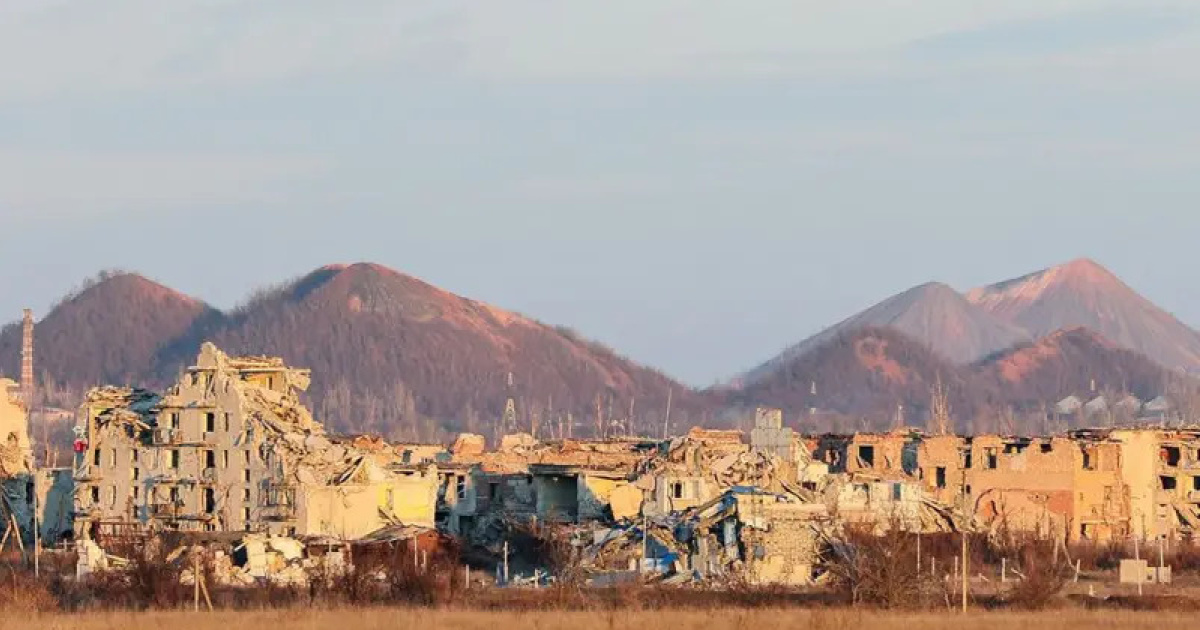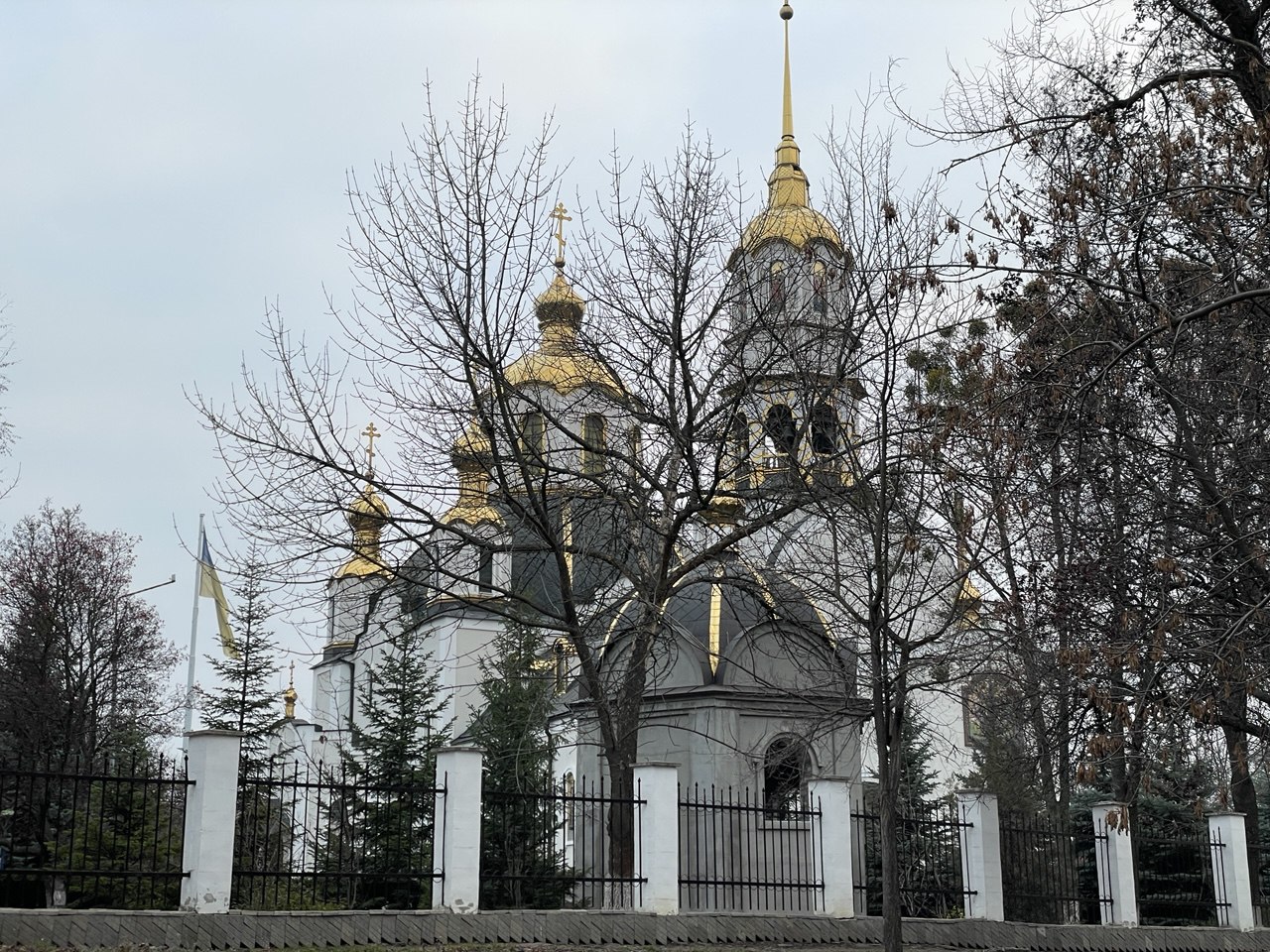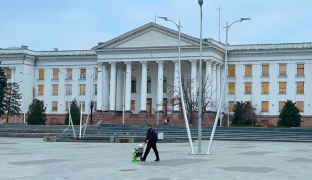Violations of the ceasefire, called truce in everyday life, have become systemic since the beginning of this year. Six months of relative, but inactivity, at the front ended. Moreover, the death reports had one strange feature - the Russians killed our servicemen mainly with sniper fire. It is one thing when you send a shell and you do not see your victim, do not personalize it. Another is to track down and kill a person whose features you can perfectly see in a sniper sight… In fact, it was a manhunt with no specific military purpose. But, of course, this was not just the entertainment of the Russian military, these killings were similar to the successive executions of hostages by terrorists in order to force those with whom they are negotiating to accept their terms. The purpose of this sniper fire was really not a military one - the goal was psychological pressure on the president of Ukraine, who, due to his empathic nature, felt personal responsibility for the death of each soldier.
But what made Moscow go for such a horrendous method of "convincing" its Ukrainian counterpart? - The fact that, while agreeing to a truce, the Kremlin, naturally, was guided not by humanitarian goals of saving lives. It had a specific political goal, which he "sewn" into the coordination mechanism for responding to the ceasefire violations. Namely: direct contacts of our generals with the CADLO militants and the notorious joint inspections by the militants and Ukrainian military of each other's positions.
The second tactical goal is to downgrade the role of the Normandy Four and increase the role of the Trilateral Contact Group. The fact is that there is no CADLO in N-4 by contrast with the TCG and, thanks to the OSCE, they feel themselves like full-fledged "state delegations"…
Both of these tactical goals were steps for Russia to implement its strategic fetish - the subjectivization of CADLO as a party to the conflict. If Moscow achieves this, such a scenario will be tantamount to Ukraine's defeat in the war and the loss of state independence, since Moscow will, in fact, control Kyiv's domestic and foreign policy through CADLO, implanted into our political body on the terms of "autonomy".
The Kremlin endured for six months, when it saw that its plan was not working, the ceasefire lost its meaning for it, and sniper fire began. When Putin's signals in the form of deliberate sniper killings did not give the desired effect, "violations of the ceasefire" became more and more widespread and escalate, largely, into a full-fledged positional war…
The fate stepped in…
It has to be said that judging by the war hysteria in Russia and in the Donbas it occupied in the winter and spring of this year, the Kremlin was clearly preparing a large-scale provocation with the aim of an offensive by the CADLO militants on the AFU positions, disguised as a counteroffensive. Most likely, they hoped to force the Ukrainian authorities make political concessions in the subjectivation of CADLO under the threat of military defeat and the promotion of this topic in the domestic political arena. Ukraine would be to blame for the "offensive on the republics". Zelensky would be to blame for the defeat. Then Medvedchuk appears, all in white. Berlin and Paris, fearing the flow of refugees and the next Ukrainian Maidan, would put pressure on the Presidential Administration without regard to ceremonial functions. In turn, the Ukrainian people, stubbornly wanting peace, not victory, would agree to any peace in such a chaos to avoid to mobilization and interrupted plans for summer vacation…
The plan was a win-win. We would have either surrendered in the form of implementation of the Minsk agreements in their interpretation by Moscow, or, if the AFU went on the counteroffensive, - got the introduction of "Russian peacekeepers" into CADLO and the preservation of the conflict according to the Abkhaz scenario…
This was the Kremlin's expectation. And judging by the polls, it could have worked. But the fate stepped in… In distant Washington, the newly elected President of the USA answered - "mmm hmm" to the question "Do you consider Putin a murderer?". And Putin received other things to worry about…
Ukraine as a tool of Moscow's pressure on the USA
A simple course of events related to the concentration of Russian troops on the border with Ukraine suggests that this had a quite indirect relationship directly to Ukraine. On March 17, President Biden called Putin a murderer; on March 21, Putin holds consultations with Russian Defence Minister Shoygu in the Siberian taiga; on April 3, Dmitry Peskov warns NATO against providing military assistance to Ukraine amid reports of the Russian troops concentration, warning of "additional measures" by Russia in this case; On April 6, Sergey Shoygu announced "control checks" in the Armed Forces of the Russian Federation.
Despite the statements of the official Kremlin that the concentration of troops is not evidence of Moscow's intentions to attack Ukraine, the Russian media and politicians actively admit the possibility of "an outright conflict between Russia and Ukraine".
At the same time, Putin's foreign policy adviser in the N-4 Dmitry Kozak stated on April 8 that he did not believe in the reality of Kyiv's intentions "to unleash a full-scale war". "These are, rather, PR actions accompanied by an imitation of military threat, most likely, there are no real intentions", - he said. Thus, we can conclude that initially, the concentration of Russian troops on the border with Ukraine was not provoked by the actions of the latter. In that case, the only trigger for such an expensive military operation that Putin suddenly carried out in late March-April was Biden's words about Putin the killer.
Precisely because this "performance" actually had nothing to do with the Donbas, Putin never even once remembered the region of the conflict during his address to the Russian State Duma. Although this was very much expected in Donetsk and Luhansk.
A serious element of easing of tension in this dangerous situation, which really created the risk of a large-scale escalation in the Donbas with the involvement of Russian troops, was President Biden's call to Putin with an offer to meet. Putin achieved his goal - he was invited to a dialogue, he was invited, in fact, under threat, and for him "their fear means respect".
Despite the fact that the threat of an open military conflict between Ukraine and Russia decreased after that, this situation marked the trend of the further geopolitics of Russia, including with respect to Ukraine. Putin saw that military blackmail works, and since the only possible tool for the Kremlin to force itself to be respected is the military one, he will actively use it as the main element of his "diplomacy".
In fact, Ukraine became an open platform for confrontation between Russia and the United States of America for the first time.
In fact, this situation showed that the USA has become full, if not the main, participants in the settlement of the Ukrainian-Russian conflict. But without clear powers, which, if Washington wishes, makes them very broad.
In addition, it demonstrated the potential danger of the OSCE policy, currently being pursued in the Trilateral Contact Group, to the entire world. It consists in "stabilizing" the conflict, not resolving it. Since "stabilizing" the conflict means maintaining it in a state when Moscow can make it a tool for clarifying its geopolitical relations with the USA and the EU countries at any time, the Donbas is becoming a constant source of threat of a serious military crisis in Europe.
Another conclusion that logically follows from the military tension on the Russian-Ukrainian border in April 2021 is that the conflict between Russia and Ukraine in the Donbas is not regional, but geopolitical. Accordingly, the Minsk and Normandy formats, as mechanisms for resolving the conflict only in the Donbas, do not meet the challenge of the global threat of Russia to Ukraine along the entire perimeter of their common border. Moreover, they do not correspond to the fact that Putin views Ukraine as a territory for sorting out relations with the USA and the EU.
This allows Kyiv to raise the issue of a new format (Budapest or Geneva), which would consider Russia's hybrid war against Ukraine (and against the USA) more broadly than one of the manifestations of this war in certain areas of the Donetsk and Luhansk oblasts in eastern Ukraine.
Till such a negotiating platform for resolving the Russian-Ukrainian conflict has been created, the most effective way to contain Russia in Ukraine is to change the format of the Minsk talks. That is, bringing them into line with the Minsk agreements.
The fact is that as of today, Russia has managed to achieve an increase in the subjectivity of CADLO in the Minsk process (so far only as subjects of negotiations). To this end, it has been solving practically only one task in the TCG since the beginning of this year - to neutralize the presence in the negotiations of representatives of internally displaced persons, who are positioned by the Ukrainian delegation as "representatives of CADLO" from Ukraine.
The instrument for the implementation of this task was introduction into the TCG of the so-called "public experts" from the "DNR-LNR", so that to remove the Ukrainian representatives of CADLO from work in the TCG in exchange for their non-participation in the negotiations, and thus leave only representatives of CADLO from Russia in the TCG.
Unfortunately, it can be stated that this tactic of Russia was partially effective.
In practice, this is expressed in the fact that representatives of CADLO from Ukraine have not taken public participation in the TCG meetings already for five months. That is, they are present in the hall, sitting at the same table with the rest of the delegation, but they are not on the monitor (consultations are carried out online), they are not speaking. This was the result of the pressure of the OSCE representatives in the TCG on the Ukrainian delegation. Thus, a temporary monopoly was actually created in the TCG for the representation of CADLO in the negotiation process for representatives of CADLO from Russia.
"Bilateral consultations" are held with them, they enjoy all the rights of individual delegations. But this completely contradicts the texts of the Minsk agreements!
In particular, the Protocol of September 5, 2014, the Memorandum of September 19, 2014, and the Package of Measures of February 12, 2015, where the TCG members (Russia, Ukraine and the OSCE), the parties to the conflict - Ukraine and Russia (paragraph 1 and paragraph 4 of the Protocol) and the functions of the CADLO representatives - consultations and agreements solely on two topics: local elections and peculiarities of local self-government (paragraphs 9 and 11 of the Package of Measures), are clearly indicated. Moreover, there are no separate representatives of CADO and CALO, as in the Minsk process. Two individual persons are specifically designated there as "representatives of certain areas of the Donetsk and Luhansk oblasts of Ukraine": Zakharchenko and Plotnitsky… However, they are no longer relevant. Who are all these Nikanorovs and Miroshniks who sit in the TCG today as representatives of CALO and CADO (although there are no such abbreviations in the text of Minsk either) is not clear, their powers have not been confirmed by anything…
There is no need to change the text of the Minsk agreements, or to accept any new agreements (Russia will not agree to this to the detriment of itself), - it is enough just to bring the Minsk process into line with the existing Minsk texts. This alone will lead to the emergence in the negotiations of the second party of the conflict - Russia, which means there will appear: the first - an opportunity for dialogue; the second - Moscow's responsibility for its actions in eastern Ukraine. That is, Russia will have to admit (now it denies this) that it has obligations under the Minsk agreements and decisions of the N-4. Or Moscow will have to leave this format due to its disadvantageousness, causing imminent sanctions this way…
Be continued.
Serhiy Harmash, Center for Research on Donbas Social Perspectives





